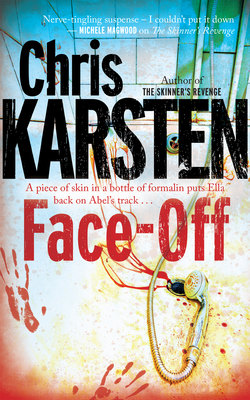Читать книгу Face-Off - Chris Karsten - Страница 7
На сайте Литреса книга снята с продажи.
Оглавление2.
Jake was watching the news on TV, his supper on his lap. Spaghetti bolognese with meatballs from Checkers, still in the polystyrene container, only the plastic cover removed.
The news was depressing: earthquakes, floods, an asteroid the size of an aircraft carrier shaving past the earth, missing it by just two hundred thousand kilometres. Images of emaciated women and children covered in dust, having travelled on foot for hundreds of kilometres to a miserable North African refugee camp; skeletal people, hunched, pecking like vultures among rubbish for anything edible; black flies in the eyes, noses and mouths of mute children, skin and bone, pot-bellied.
Jake wiped the sauce dribbling down his chin, switched to another news channel, watched an insert from the BBC’s correspondent in Islamabad. Got up to fetch another beer.
“Pakistani soldiers fighting the Taliban in South Waziristan have surrounded a key stronghold of Uzbek fighters in the town of Kanigoram,” the correspondent was saying. “Up to a thousand Uzbek insurgents are thought to be hiding in a maze of tunnels in the mountains surrounding the civilian population. According to a spokesman for the Pakistani security forces, there is heavy fighting in Kanigoram and a large number of casualties are expected, especially among civilians caught in the crossfire. In the past the town gave shelter to supporters of Hakimullah Mehsud, leader of the Pakistani Taliban, before his death in a CIA drone strike . . .”
Jake’s cellphone rang. He put down his fork, turned down the volume and said: “Diamond.”
“Jake Diamond?”
“That’s right.”
“The journalist?”
“Who’s this?”
“Listen, Jake. I have a story for you, if you’re interested.”
“I’m interested. It’s my job. Who are you?”
“Doesn’t matter,” said the male voice. “You wrote a story – that’s where I saw your name. About those five officials arrested for corruption.”
Jake switched on the digital recorder attached to his phone. “It was a SAPA report from Durban,” he said. “I just added some local opinion.”
The man read a paragraph from the report: “During a police raid on a regional office of the Department of Home Affairs in Umgeni, KwaZulu-Natal, five officials were arrested on suspicion of corruption after allegedly issuing marriage certificates for so-called marriages of convenience between South African citizens and foreigners. These marriages enable foreigners to obtain South African citizenship, identity documents and passports. A spokesperson for the Department of Home Affairs told the Record that the arrest was an isolated case and the Department was cooperating with the police. The spokesperson denied allegations of widespread corruption in the Department.”
“So,” said Jake, “what’s the story?”
“Do you believe her? This spokesperson who says it’s an isolated case?”
“If that’s what she says.”
“I worked there, my friend, before I was given the boot. Read the other article – the one that was published in June. It was in all the papers, TV as well. Read it and ask yourself: is it an isolated case, or what?”
“Which article are you talking about?”
“Google it.”
“What should I google?”
“Daniel Robinson. And after you’ve read it, phone a certain Mr Heilbron at the Home Affairs regional office in Joburg. Number’s in the directory.”
There was a click and a buzz. Jake switched off the recorder, stuffed a meatball into his mouth and reached for his laptop. A search for “Daniel Robinson” in the electronic archives of the Record yielded thirty-seven results.
An article by Associated Press drew his attention:
Terrorists exploit SA corruption
Associated Press: Pretoria – The alleged mastermind behind al-Qaeda raids on US embassies who was killed in East Africa was carrying a fake South African passport, according to officials, thus focusing attention on warnings that corruption in South Africa is being exploited by terrorists.
Security experts have previously warned that corruption in South Africa could allow terrorists to obtain documents in order to hide their identity.
In 2004, then Home Affairs Director General Barry Gilder told Associated Press that South African passports had been found in the hands of al-Qaeda suspects and associates ‘in a number of instances’. The Police Commissioner at the time, Jackie Selebi, reportedly said an al-Qaeda suspect in London had been found in possession of ‘boxes and boxes’ of South African passports.
The Department of Home Affairs said on Monday that it was investigating reports that the alleged head of al-Qaeda in East Africa, Fazul Abdullah Muhammad, who was killed in Mogadishu, had a South African passport in his possession.
According to a report, Muhammad had been in possession of a South African passport in the name of Daniel Robinson. US officials suspected him of planning the August 7, 1998 embassy bombings in Kenya and Tanzania, during which 224 people were killed, and offered a $5m reward for his capture.
Scott Stewart, former intelligence agent with the US State Department, said in a telephone interview that in South Africa ‘you could show up, give the right guy a few hundred dollars, and walk away with a passport. Terrorists will take advantage of corruption.’
Stewart, now with the US-based global intelligence company Stratfor, said terrorists who planned to blow up transatlantic airliners leaving London’s Heathrow airport in 2006 had used fake South African passports to enter Britain from Pakistan. These passports had allowed them to conceal trips to Pakistan that might have raised suspicion.
Since 2009 the United Kingdom has required visas from South Africans, maintaining that terrorists and criminals exploited the easy availability of stolen or forged South African passports. Anneli Botha, counterterrorism researcher with South Africa’s independent Institute for Security Studies, says, ‘You can have the most sophisticated measures in place, but you’re only as strong as your weakest link. Corruption is our weakest link.’
